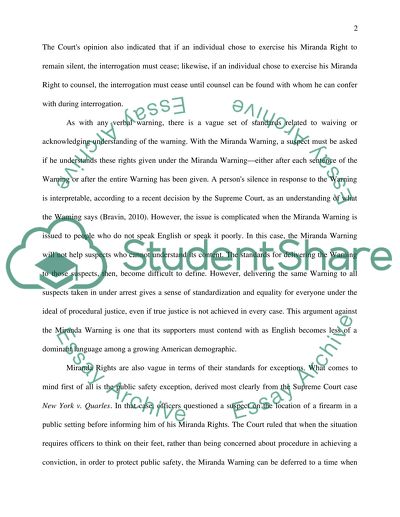Cite this document
(“Miranda Rights Research Paper Example | Topics and Well Written Essays - 1500 words”, n.d.)
Retrieved from https://studentshare.org/law/1434376-miranda-v-arizona
Retrieved from https://studentshare.org/law/1434376-miranda-v-arizona
(Miranda Rights Research Paper Example | Topics and Well Written Essays - 1500 Words)
https://studentshare.org/law/1434376-miranda-v-arizona.
https://studentshare.org/law/1434376-miranda-v-arizona.
“Miranda Rights Research Paper Example | Topics and Well Written Essays - 1500 Words”, n.d. https://studentshare.org/law/1434376-miranda-v-arizona.


